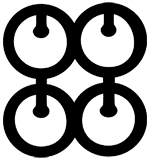Books, Books, Books
Ender's Game - Continuing my recent interest in sci-fi novels, I picked up Ender's game because it tops several "all time best" lists and is being made into a movie sometime in 2013. Very fun read.
The End of Eternity - Another great book by Isaac Asimov. This one was not quite as good as the foundation trilogy, but if you enjoy time travel I highly recommend it.
The Highly Selective Dictionary for the Extraordinarily Literate - Runaway winner for the most pretentious book title ever. Still found some good words, such as these listed below. Puerto Rico has callipygous autochthons.
autochthon (aw-TOK-then) noun, plural autochthons or autochthones (aw-TOK-the-NEEZ) an aboriginal inhabitant of a place; an earliest known inhabitant of a place.
callipygian (KAL-i-PIJ-ee-en) adjective, also given as callipygous (KAL-i-PI-ges) having shapely buttocks.
dipsomania (DIP-se-MAY-nee-e) noun an uncontrollable craving for alcoholic drink.
Grundyism (GRUN-dee-IZ-em) noun 1. a narrow-minded adherence to conventionality, combining propriety and prudery in matters of personal behavior. 2. grundyism, an instance of such conventionalism.
The Way of Zen - Above average book by Alan Watts, whose writing I enjoy. Favorite passage:
According to convention, I am not simply what I am doing now. I am also what I have done, and my conventionally edited version of my past is made to seem almost more the real “me” than what I am at this moment. For what I am seems so fleeting and intangible, but what I was is fixed and final. It is the firm basis for predictions of what I will be in the future, and so it comes about that I am more closely identified with what no longer exists than with what actually is!
1001 Smartest Things Ever Said - Some very smart/wise quotes were indeed included, notably:
People travel to wonder at the height of the mountains, at the huge waves of the seas, at the long course of the rivers, at the vast compass of the ocean, at the circular motion of the stars, and yet they pass by themselves without wondering. -Saint Augustine
Happy the man, and happy he alone, He who can call today his own: He who, secure within, can say, Tomorrow do thy worst, for I have lived today. Be fair or foul or rain or shine The joys I have possessed, in spite of fate, are mine. Not Heaven itself upon the past has power, But what has been, has been, and I have had my hour. -Horace
Millions long for immortality who do not know what to do with themselves on a rainy Sunday afternoon. -Susan Ertz
He who angers you conquers you. -Elizabeth Kenny
We don't see things as they are, we see them as we are. -Anais Nin
